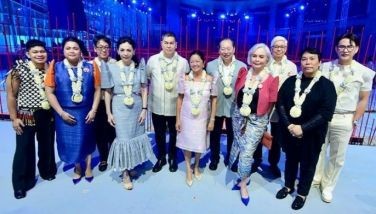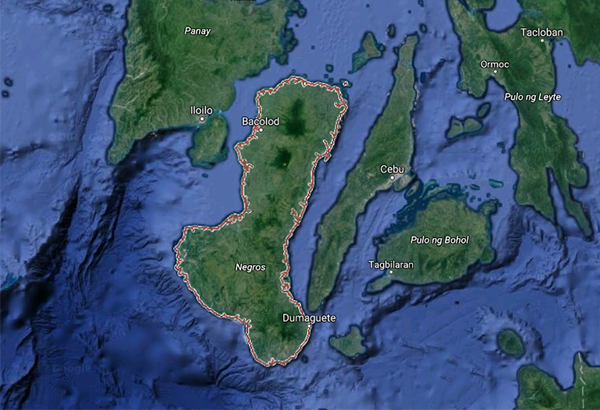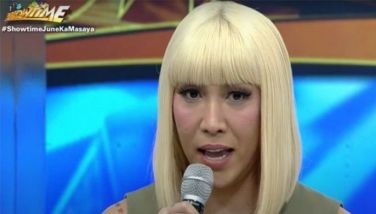Everyone's responsibility: How Finland is raising a generation of environmental ‘experts’
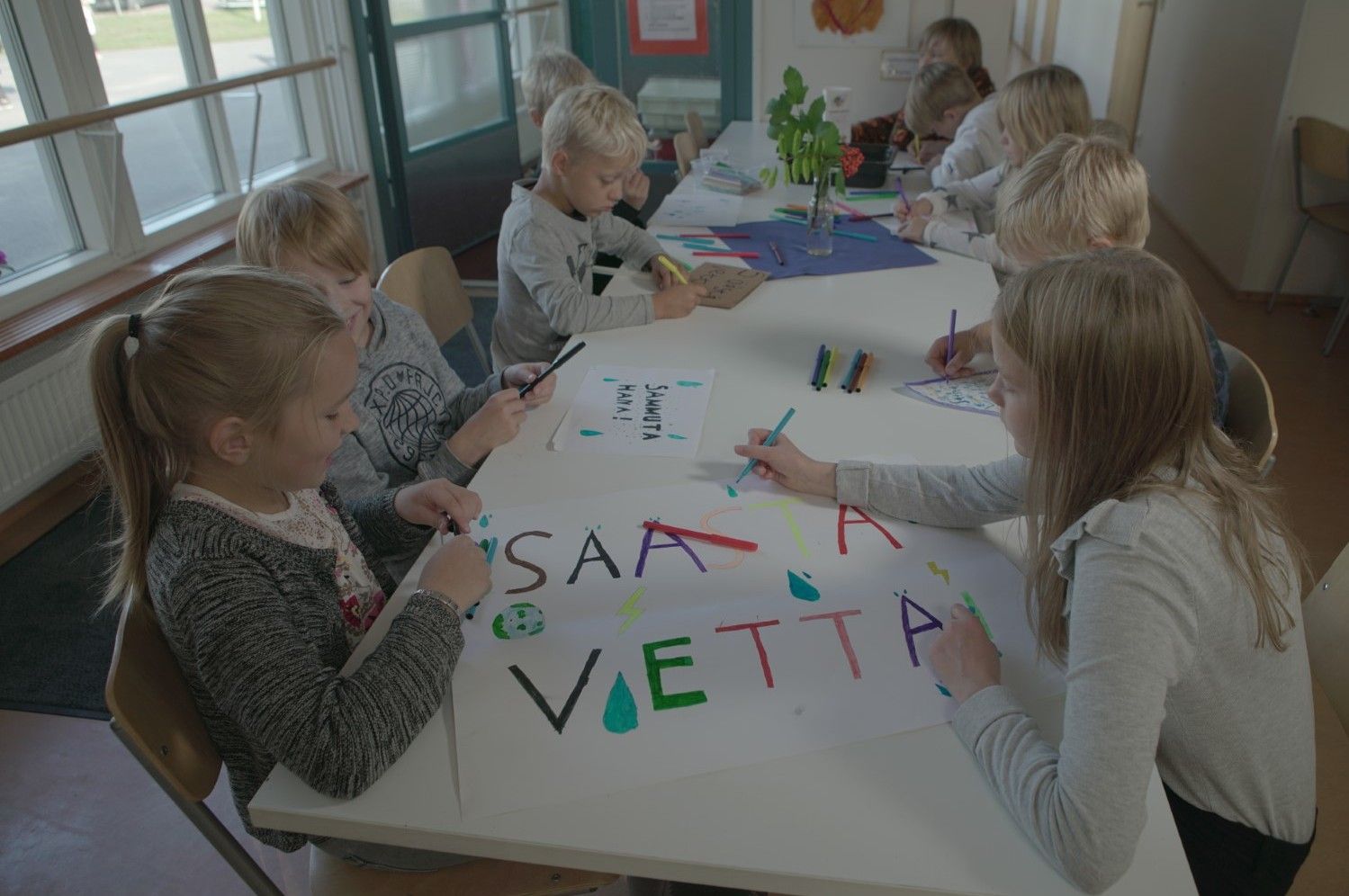
Behind Finland’s ambitious plan to achieve net zero in 2035 is a generation being raised to believe everyone can become circular economy experts and environmental advocates — not just scientists and activists.
HELSINKI, Finland — A biologist, a physicist and an engineer one day walk into a room with a wild idea: to create food out of thin air.
They will do so, only after they get help from a food scientist, a recipe tester, and a marketing professional — people who likely would have never crossed paths with the biologist, the physicist and the engineer, if not for a shared goal of making the impossible happen.
There may be few shared skills between a physicist and an artist, a chef and a chemist. But this bold collaboration across disciplines has paved the way for Finnish startup Solar Foods to create the world’s first alternative protein from renewable energy and carbon dioxide with only 1% of the environmental impact of animal agriculture.
Finland’s race to net zero by 2035 — one of the most ambitious climate targets in the developed world — has prompted several companies in different industries to innovate and adopt circular economy practices so the goods they produce don’t generate heaps of waste.
But it’s not just a culture of problem-solving in Finland — a country similar in size to the Philippines but with a population 20 times smaller — that has allowed companies like Solar Foods to turn a thought experiment into a concrete solution to help save the planet.
Finland’s education system emphasizes the importance of sustainability from day one — literally as early as kindergarten. And thanks to recent initiatives, circular economy practices are being taught across levels and among working professionals, so that circularity is practiced in “widely different sectors in distinct and specific ways,” Tuuli Hietaniemi of the Finnish Innovation Fund Sitra told Philstar.com.
Indeed, for Solar Foods’ CEO Pasi Vainikka, it’s people crossing disciplines to create “disrupting solutions” that will help address increasingly finite resources and the climate crisis.
A nation of experts
The Finnish environmental ministry has identified overconsumption of natural resources as one of its main challenges to sustainable development, said Minister Kai Mykkänen.
It would take four planets to sustain humanity if everyone on the planet consumed at Finland's levels, much higher than the Philippines’ consumption level equal to one planet, according to estimates by the Global Footprint Network.
This is why in 2016, Finland was the first country in the world to prepare a national roadmap to pivot to a circular economy, which aims to arrest the fast turnover of products and reduce emissions and wastage as early in the supply chain as possible.
“We are in a hurry — we are beating every record every month. So why don’t we tackle all of this at the same time? And we think the circular economy is one of the ways to tackle all this given how it impacts both emissions and biodiversity,” said Hietaniemi, Sitra’s leading specialist on sustainability solutions, during a meeting with select international media on April 23.
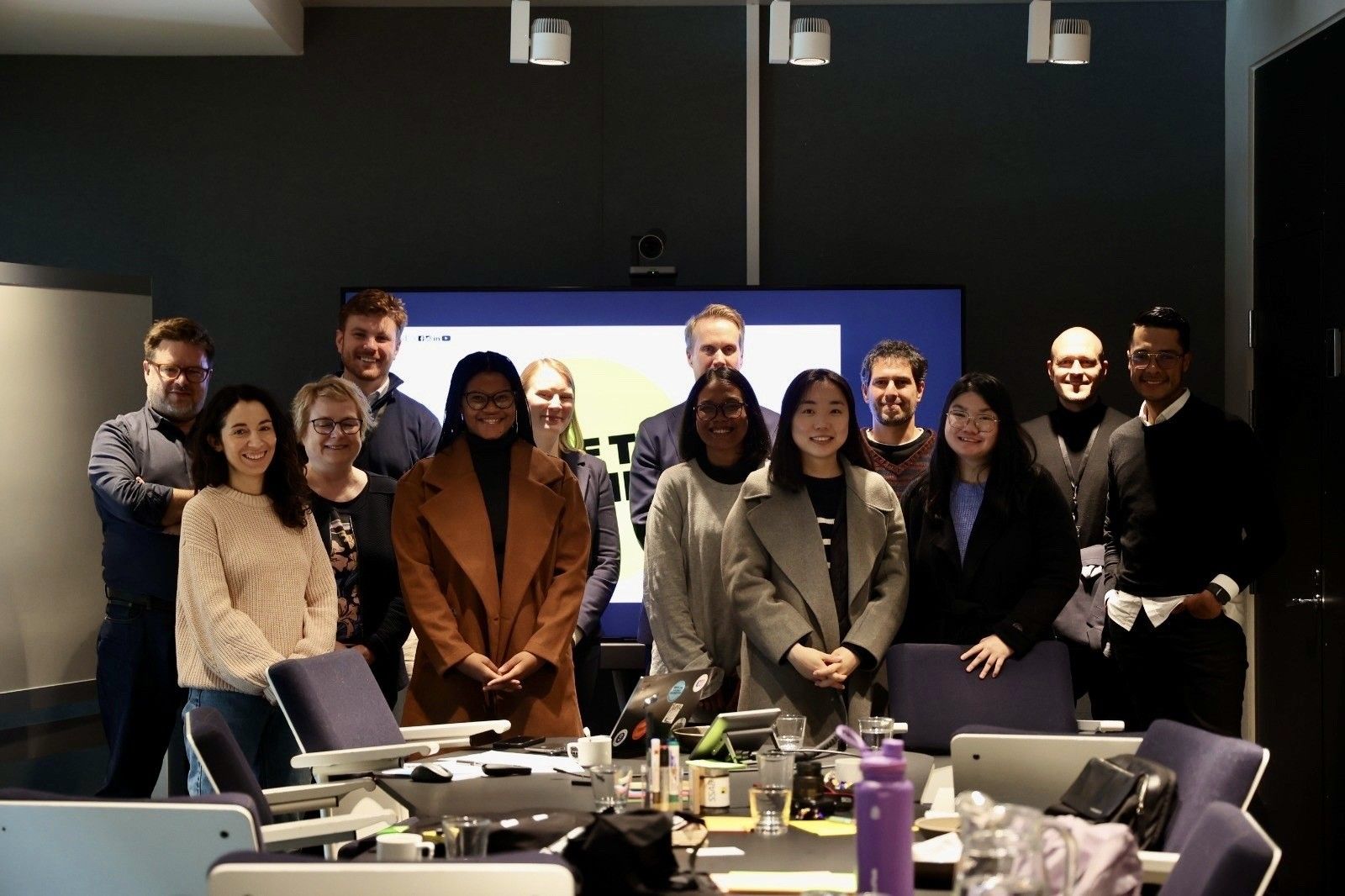
Such a drastic system change needed all hands on deck, prompting Sitra — Finland’s independent body operating under the supervision of its Parliament — to invest nearly €4 million in 2017 to integrate circular economy education across the whole Finnish education system.
This is equivalent to around P247 million — around a third of the total budget for the Philippines’ Department of Education in 2024.
“Because we hope that when everyone graduates, we won't just have one or two experts, but every professional, every graduate is a circular economy expert,” Hietaniemi said.
Through university partnerships, Sitra developed and disseminated learning modules on the circular economy that were taught to students from primary school to upper secondary school, as well as students in vocational school.
Lessons went beyond the usual “reduce, reuse, recycle” technical know-how.
For instance, students in upper comprehensive school (for ages 13-16, similar to junior high school ages in the Philippines) were encouraged to consider their dream job through the lens of climate change and circular economy skills, whether as a lawyer, a YouTuber or even a merchant.
Meanwhile, students in upper secondary and vocational school (ages 16-19, similar to senior high school ages in the Philippines) explored an open learning platform about the circular economy in textile and fashion design.
The independent body also prepared teaching packages and organized teacher training sessions. “Funding from Sitra has meant that it has not been necessary to develop teaching materials alongside other work, but rather as a separate work package of its own. This has helped establish the courses in the activities of the educational institutions,” Sitra said in its website.
By the end of school year 2018-2019, more than 70,000 children and young people in Finland had studied the circular economy across all levels of education. Circular economy is now taught across multiple subjects, with Sitra’s learning materials still in use.
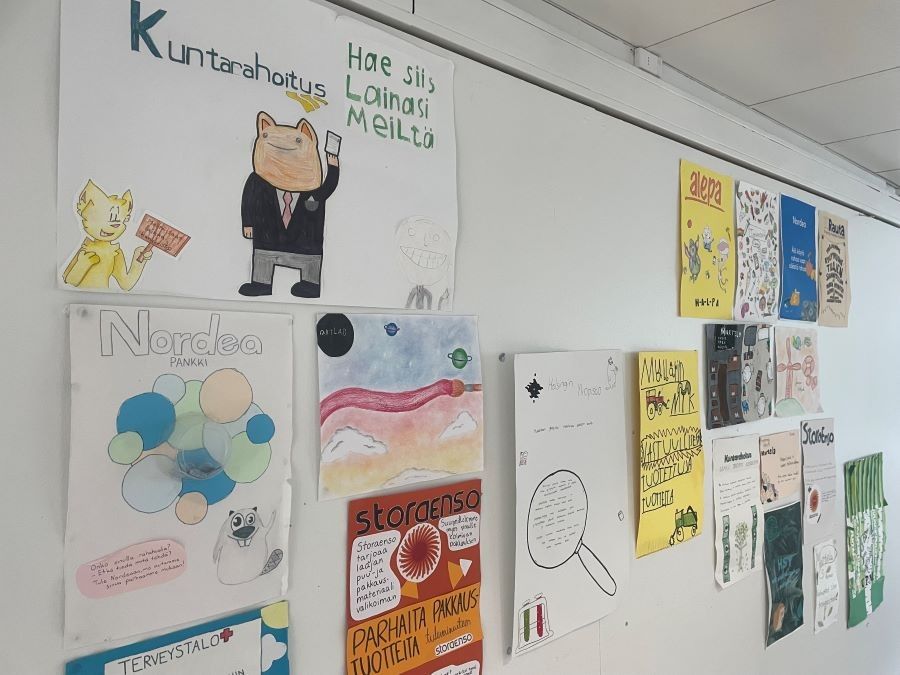
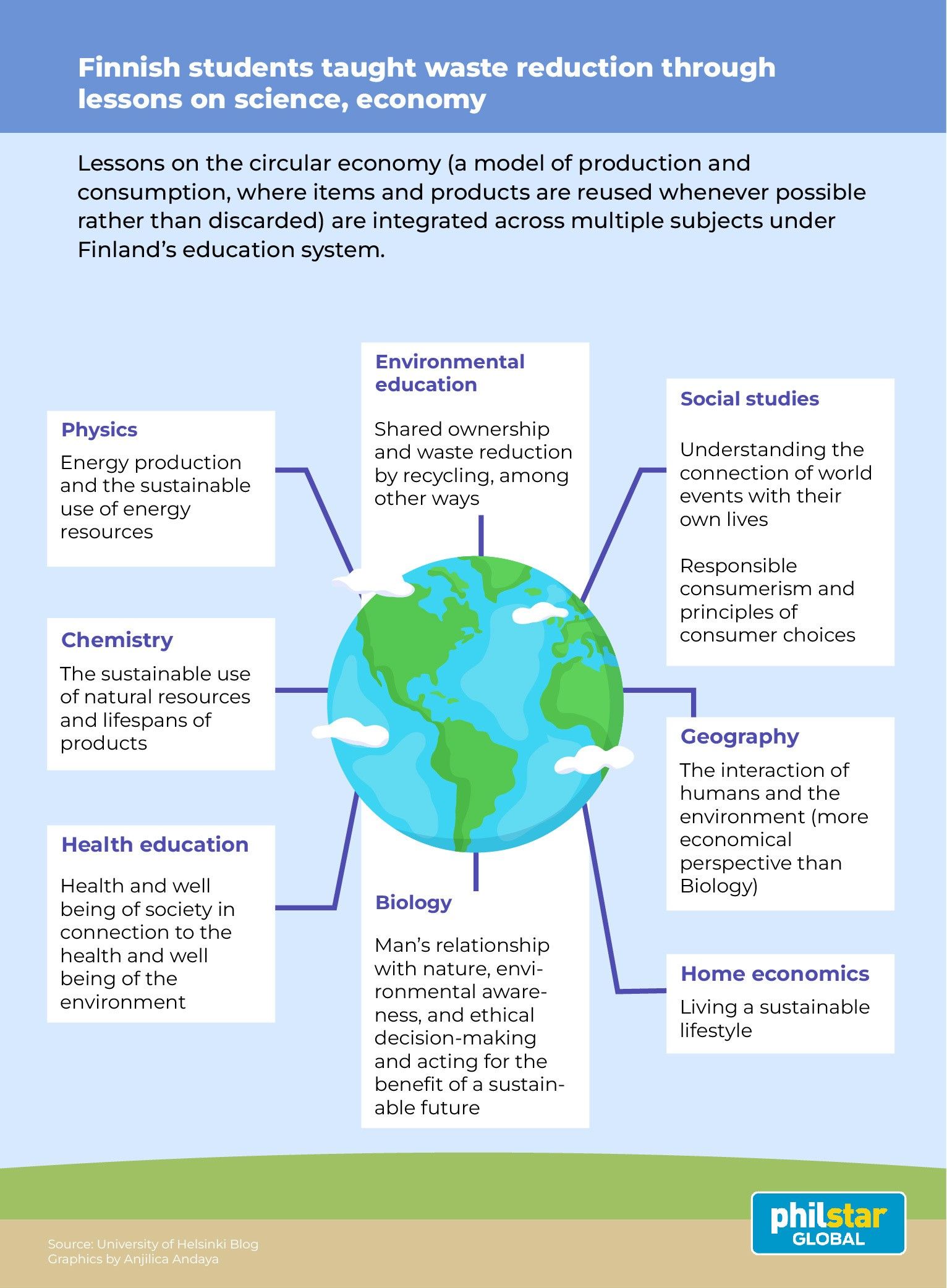
Circularity across industries
Instead of creating a “new (and) separate silo” where only a select few specialized in the circular economy, students across different disciplines were taught to “apply circular principles in practice in widely different sectors in distinct and specific ways,” Hietaniemi said.
This means it’s not just business owners or entrepreneurs being trained to be more conscious of reducing waste.
Among others, college programs on forestry, architecture and food production have had courses developed with a “specific circular economy lens applied at the subject matter,” Hietaniemi said.
“We already have many experts across different sectors in Finland, and rather than developing a new discipline with experts that only know circular economy, we have tried to bring circular economy as a tool to existing experts,” she added.
Before Solar Foods was able to sell its novel alternative protein powder Solein, the founders first cooked up earlier versions of Solein through a research project carried out by Finnish public research university LUT University and the VTT Technical Research Center of Finland.
In a discussion with international media, Arttu Luukanen of Solar Foods explained that it was not luck, but hard work, that allowed their multidisciplinary team to create their first large-scale production facility for Solein.
The founders themselves may have specialized in bioengineering and biology, but their experts in recipe testing, regulations and other disciplines turned the protein powder into actual, marketable food, Luukanen said.
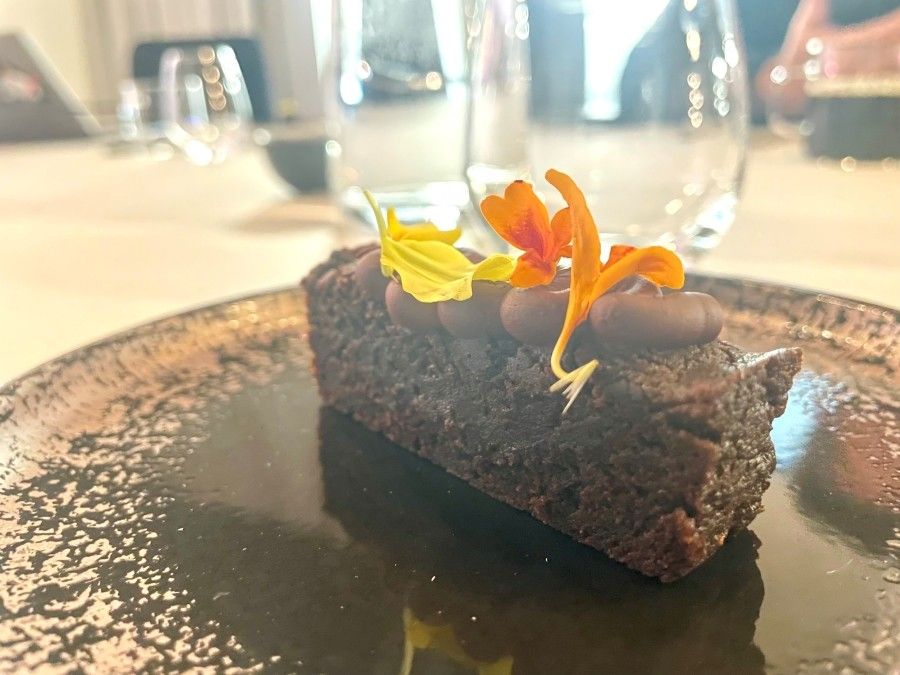
“The fact that it doesn't taste bad, it's not dangerous and it works well in recipes wasn’t luck. It was mostly hard work. For instance, in the biology team, that team was screening thousands and thousands of samples to isolate these new bacteria collected from the environment,” Luukanen said.
Finland’s integration of circular economy courses at universities has also connected students with actual working professionals, especially in the food sector. And for good reason: the food industry makes up 30% of the world’s energy consumption and 22% of greenhouse gas emissions, according to the United Nations.
In 2021, post-graduate students of the Aalto University School of Business taking up creative sustainability partnered with Restaurant Nolla, the first zero-waste restaurant in the Finnish capital of Helsinki, to ramp up their sustainability practices.
The collaboration aimed to help the restaurant “understand what sustainability means to us and what it means to our customers,” Restaurant Nolla said on its Facebook page.
“How important is the ‘cleanliness’ of our food? Is minimizing packaging waste that important? What about our energy consumption and the source of it? What are our social responsibilities as restaurants?” it added.
Head chef Constantine Angelov said he has spent the last three years at Restaurant Nollo striving for a standard of sustainability that’s “far different from the standard often chased in Michelin restaurants.” Restaurant Nolla, for instance, adjusts their menu based on seasonal produce. No plastic is used to transport their supply of meat, fish and vegetables.
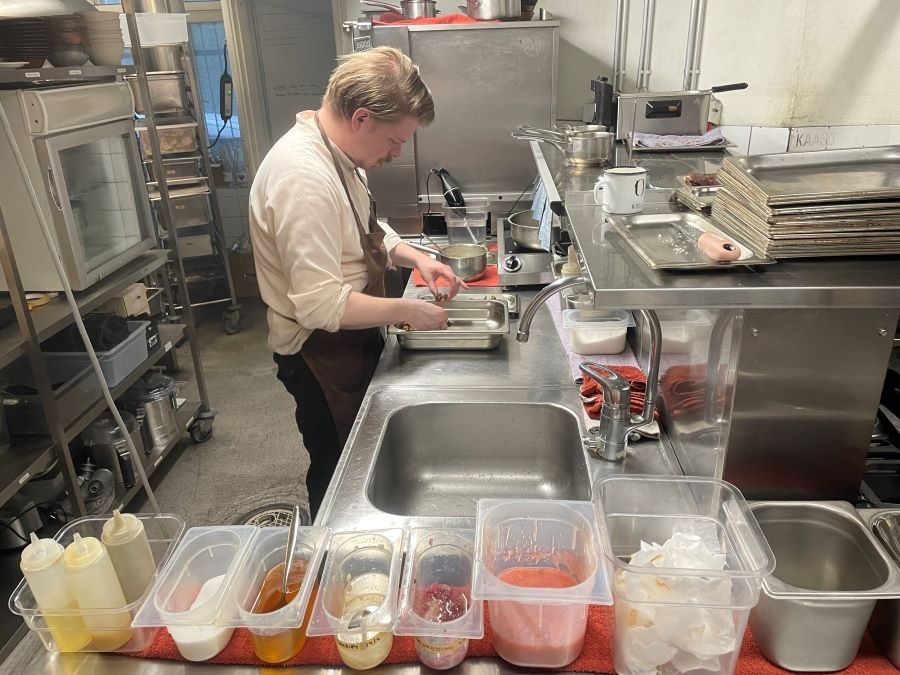
How much more zero-waste can a 100% zero-waste restaurant get? Angelov told Philstar.com that the restaurant “engages with researchers and partners with universities and startups to perfect our methods.”
Working toward shared responsibility
An overwhelming 88% of Finns said they believe they have a role to play in advancing the circular economy, according to a 2021 survey by Sitra, indicating a resounding, if not nearly unanimous push to adopt circularity as a way of life.
That doesn’t come as a surprise. Finland’s education system — which remains among the world’s best — teaches children as early as kindergarten to “respect nature, its plants, and animals.”
RELATED: Climate change is a societal issue. Why is teaching it limited to memorizing science? | Teachers need resources, curriculum flexibility to make climate change education stick
Hietaniemi explained that besides teaching students practical skills such as “not littering while on excursions, learning moderation, responsibility related to meals and saving energy,” they are encouraged to “pay attention to the impacts of their actions.”
“It is important to ensure that children feel they can contribute to a sustainable way of living through their actions, however without having to bear too much responsibility for maintaining it as children,” she explained.
A 2022 research article published in the International Journal of Sustainable Engineering that discusses Sitra’s circular economy education program identifies education as one of the “key elements in changing consumption habits in the long run,” especially in countries aiming for a carbon-neutral circular economy.
The article, which was co-written by Nani Pajunen, one of the core members that developed Sitra’s education materials, said: “In order to achieve the objective, sustainability, it is vital to find a role for everyone, ranging from professionals in different fields to schoolchildren.”
“It is not enough to simply have environmental managers or sustainability experts in different organizations to oversee the transition towards sustainability, because it is everyone’s responsibility,” it said.
--
Editor’s note: The trip to Helsinki, Finland was hosted by the Communications Department of the Ministry of Foreign Affairs of Finland. At no stage does the host organization have a say on the content generated from the coverage, interviews conducted, publication date and story treatment. Content is produced solely by Philstar.com following editorial guidelines.
- Latest
- Trending






